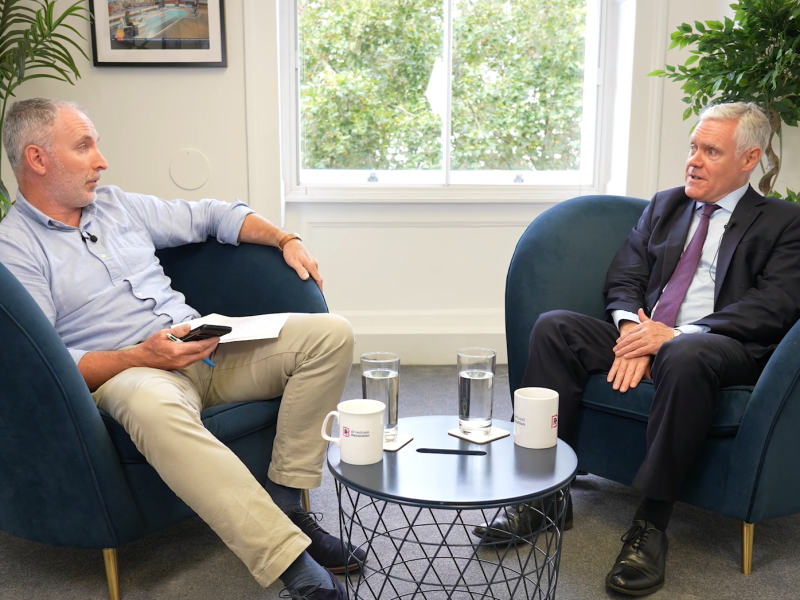
18/09/2025 / Broadcast Revolution HQ

We are heading into one of the busiest seasons for travel and leisure brands, and competition is high to reach audiences and move the dial. To help PRs gain the insights they need to cut through and make an impact, Broadcast Revolution set up an event with renowned travel journalist, Simon Calder, who sat down with our Head of News Mike Young to share his views on the evolving world of travel.
From the emotional impact of consumer travel stories to future trends and the role of technology, Simon offered valuable takeaways for PR professionals on what’s next for the travel and leisure sector.
What Makes a Great Travel Story
Simon described travel as “the industry of human happiness”, allowing us to live our dreams and meet new people. He highlighted how stories of airport closures, such as at Heathrow earlier this year, or disrupted travel plans resonate widely because they are so relatable – in Simon’s words, “everyone has an opinion on travel”.
In a crowded news landscape, the best travel stories are concise, timely, and offer something new. He isn’t interested in superficial details like “what tea is being served on a plane”—he wants to know what’s new, how much it costs, and why it really matters.
Impact of the pandemic
Reflecting on the Covid-19 pandemic, Simon was critical of the UK government’s travel traffic light system, calling it “destructive” to the travel sector, with rapidly shifting policies that created confusion. In contrast, he described 2019 as a “golden age of travel” when people were travelling further and spending less.
Politics
Simon also spoke on the geopolitical influences on travel, particularly the decline in US tourism since Trump’s 2nd presidential term got underway. Destinations like Miami are particularly being impacted with fewer Canadian and Mexican tourists. Despite this, “the global travel industry knows Brits look for a bargain”. It’s Simon’s view that as prices drop, UK travellers will likely return to the US in larger numbers.
The Role of Technology and Accessibility
Simon sees a major role for technology in streamlining the travel experience. “AI will help with friction points,” especially around airport security. He also touched on a lack of accessibility for travellers with disabilities, noting that many airlines still follow a “one size fits all” model, which often excludes travellers with additional needs—a point brought to public attention by BBC journalist Frank Gardner.
Future Travel Destinations
Looking ahead, Simon pinpointed Eastern Europe, the Balkans, and Asia as travel’s next big locations—regions that offer immersive experiences at lower costs. Closer to home, he suggested that Northern Ireland remains underexplored by British tourists despite its natural beauty.
Getting Heard in the Travel Media
For brands wanting to break into the travel news agenda, Simon’s advice was simple: have credible voices on the ground. First-hand insights from people experiencing events in real time remain the most powerful and trusted source of storytelling.